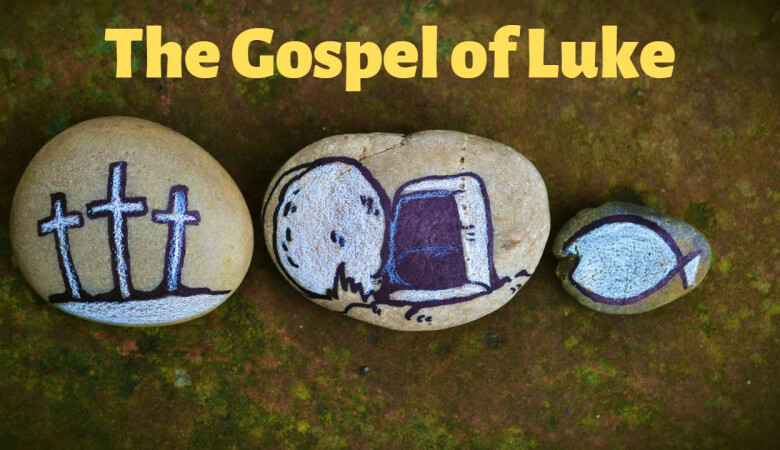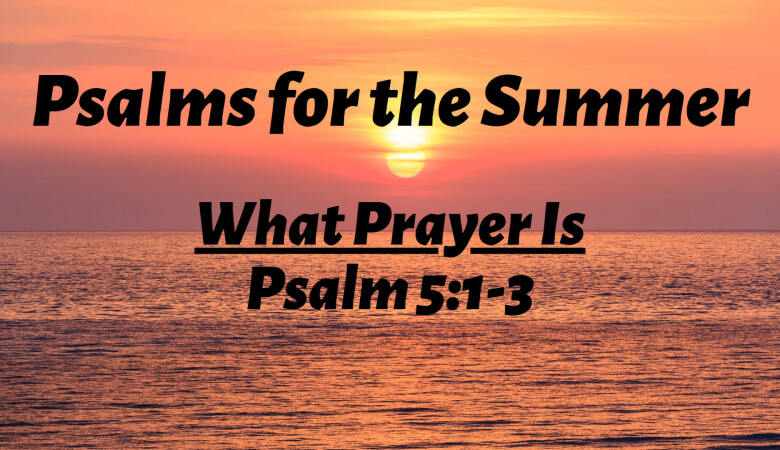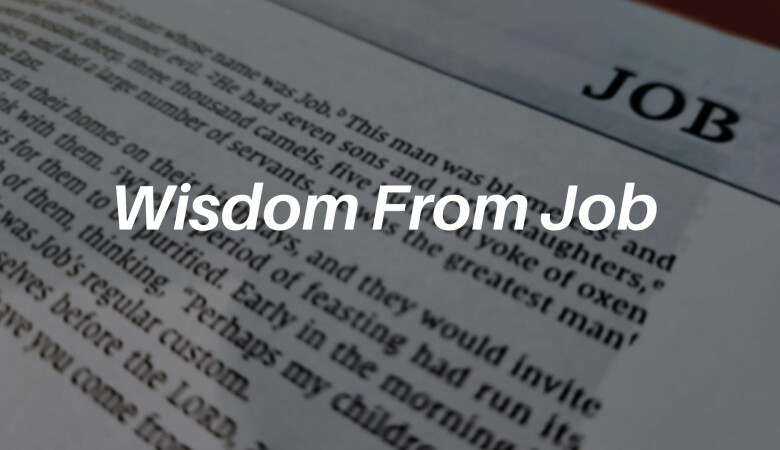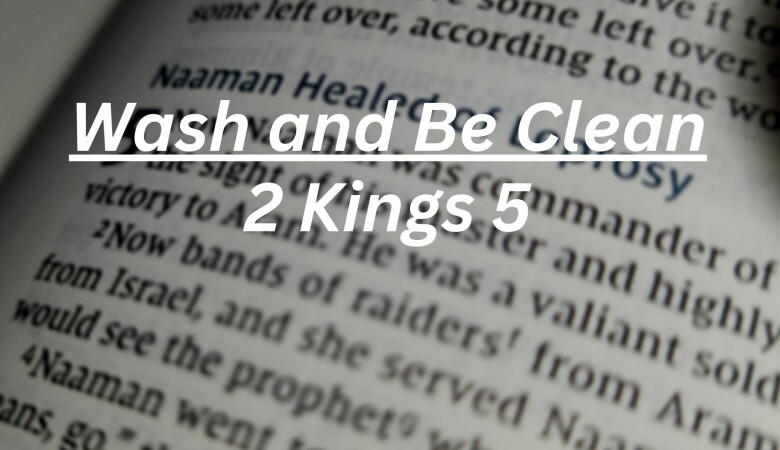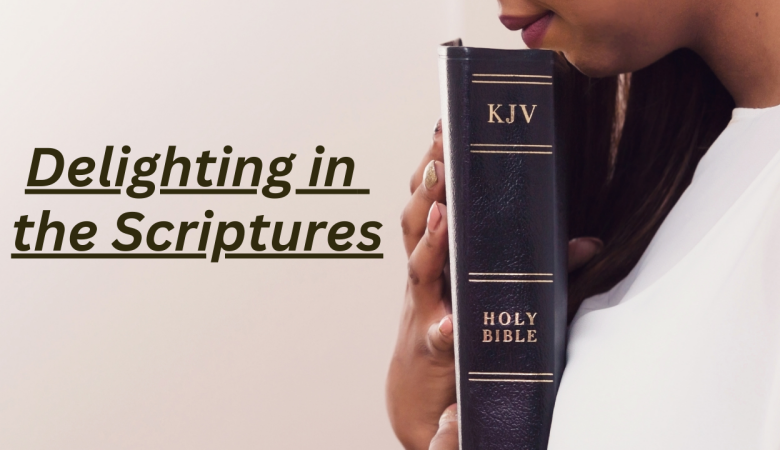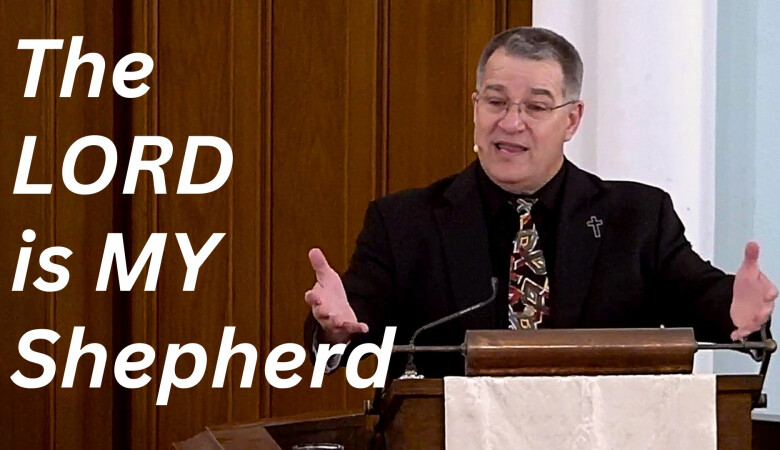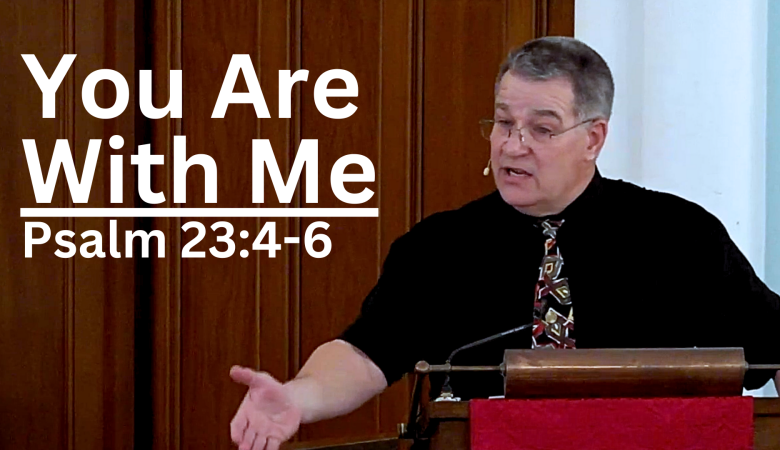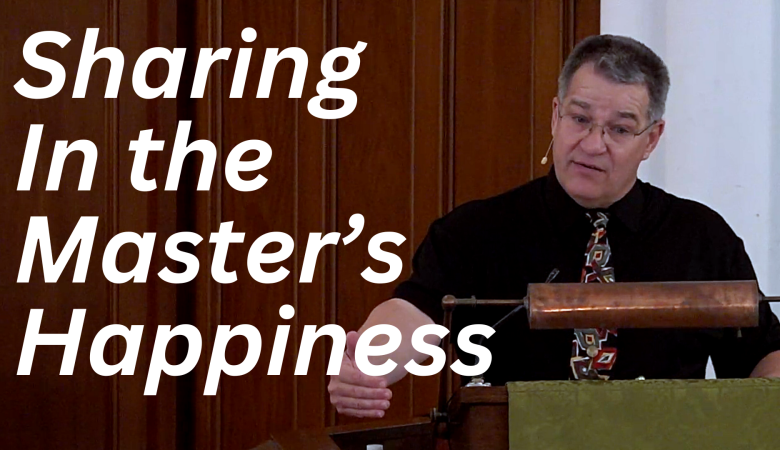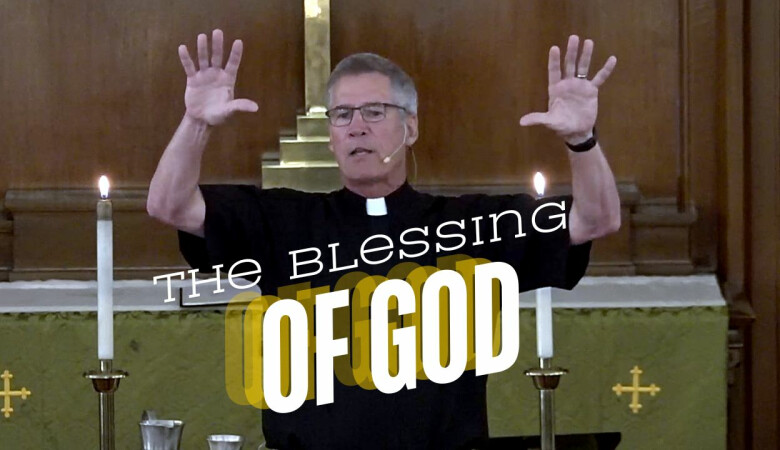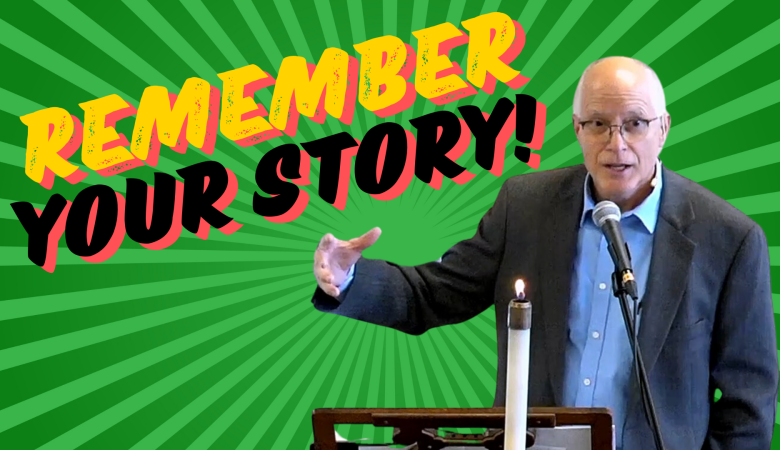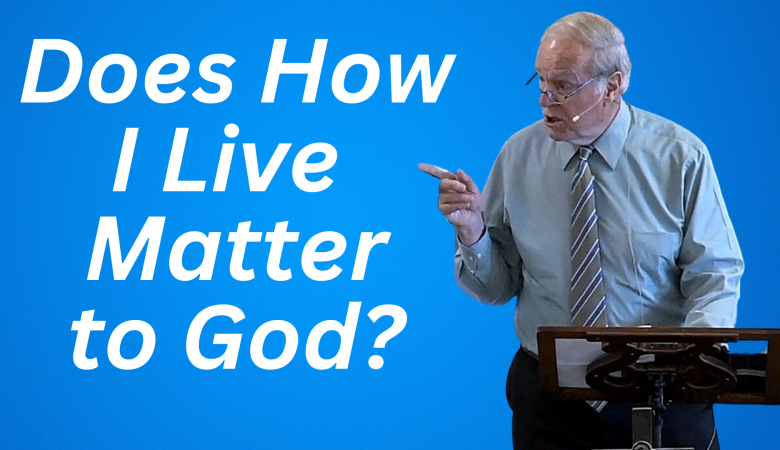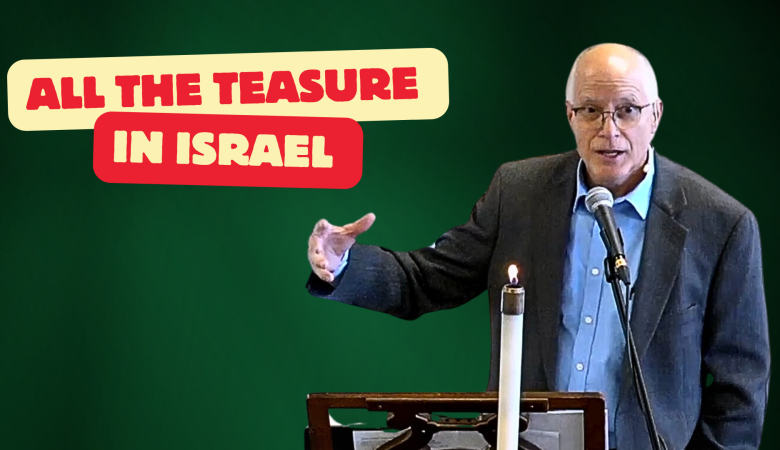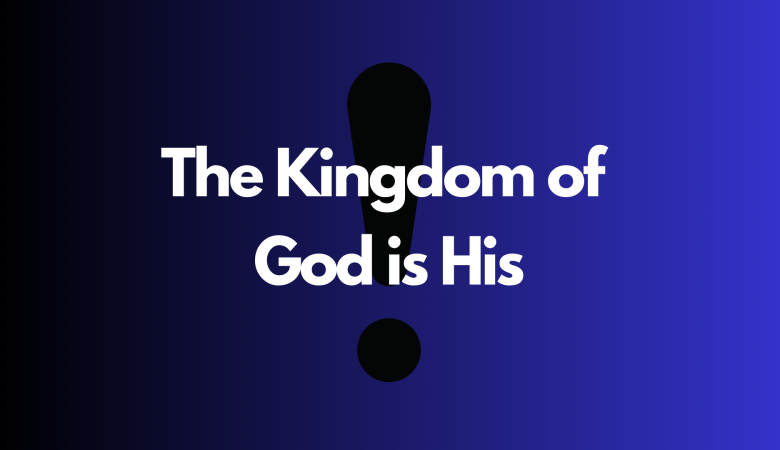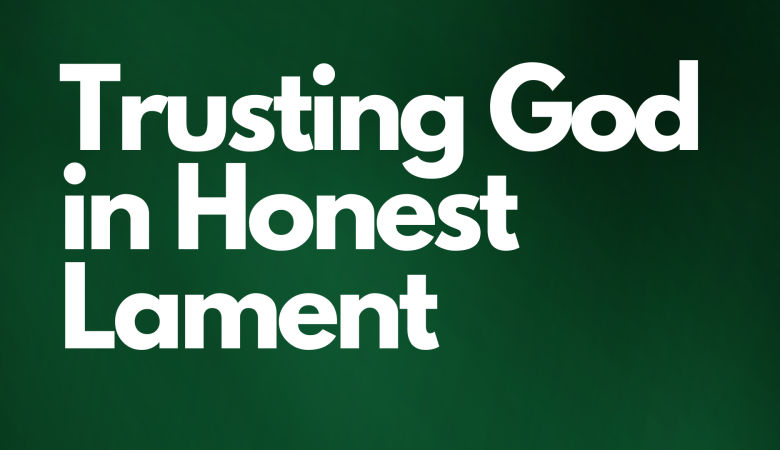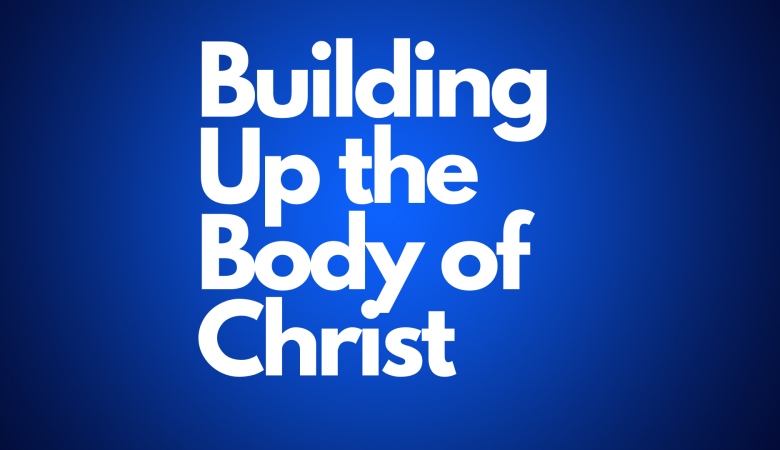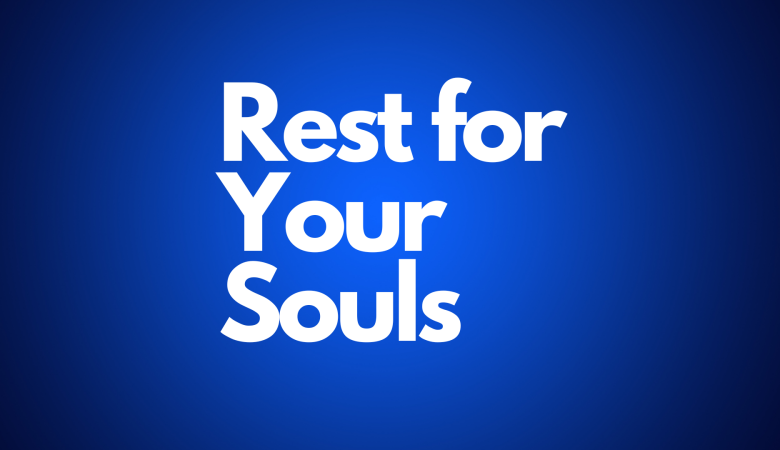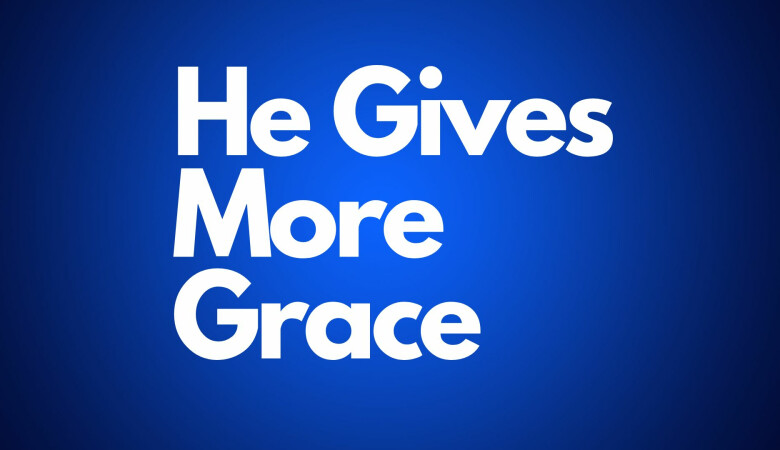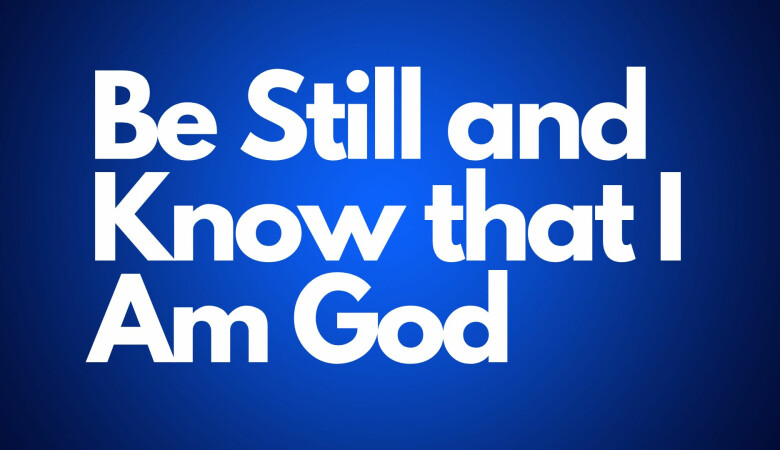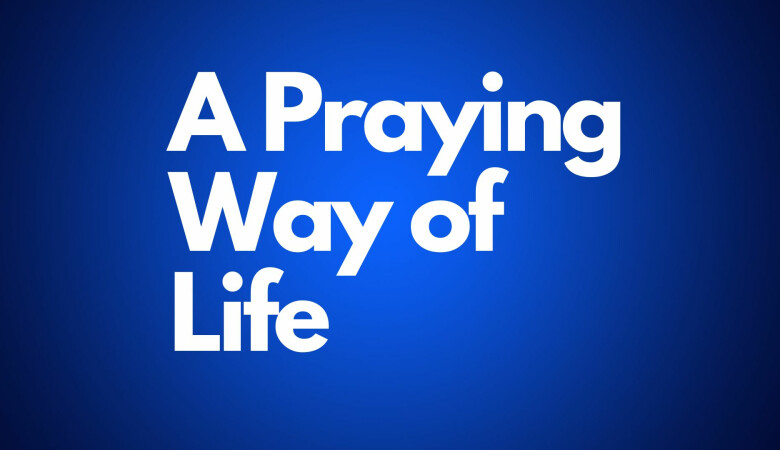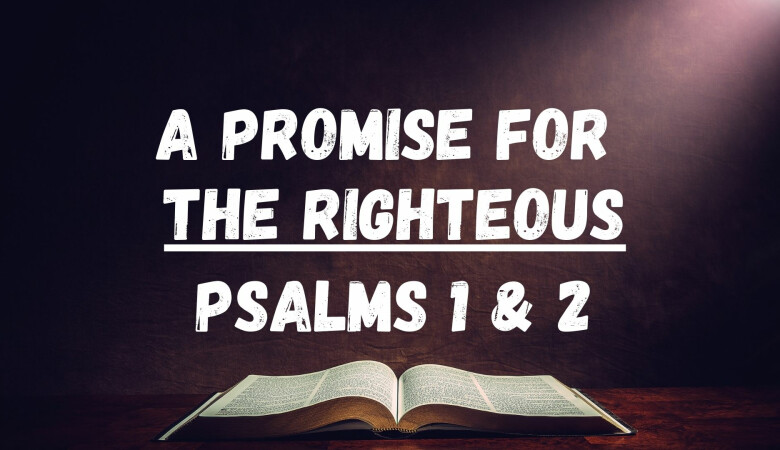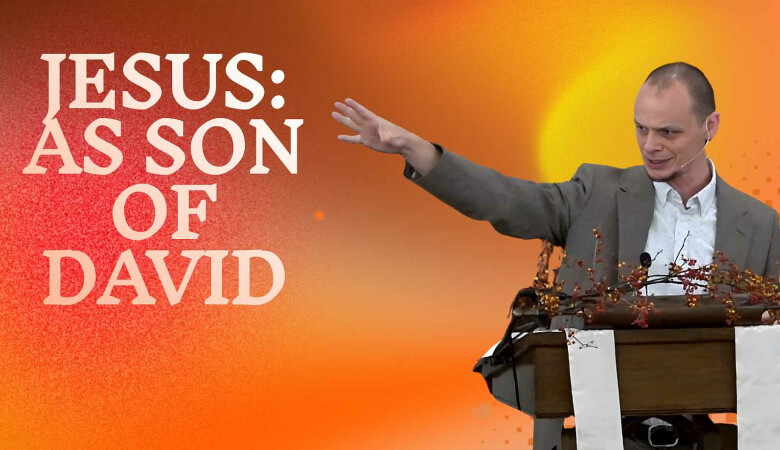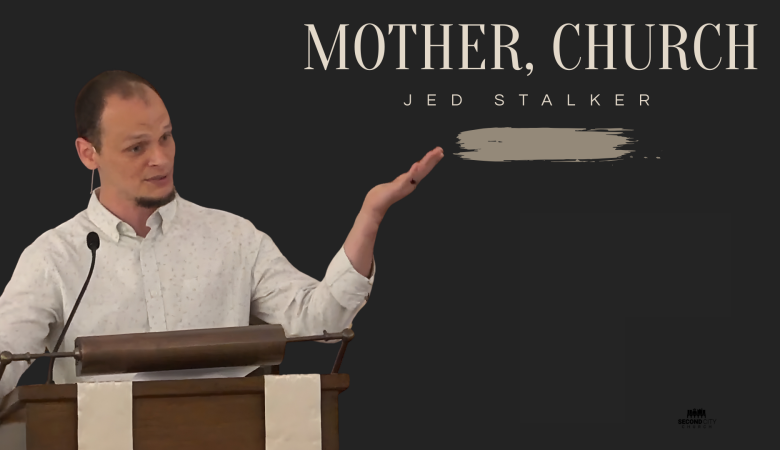Series: Guest Preachers
Ahab and Micaiah
July 14, 2024 | Kevin Sheahan
Passage: 1 Kings 22:1-40
ALL SERMONS IN SERIES
Summary
In 1 Kings 22, the prophet Micaiah stands alone against King Ahab and 400 of his false prophets. Though pressured to speak favorably of the king, Micaiah insists on being faithful to the word of the Lord, causing him to be thrown into prison. Micaiah presents a picture of faithful service to God and his word. Micaiah's brave stand against certain consequence foreshadows the very life of Jesus.
Transcript
So we knew we were pregnant with our first child and we knew it was going to be a boy. Of course that sent us into, we have to figure out a name. I was reading this passage, 1 Kings 22 one day. I thought, "This Micaiah character, what a great character. That would be a great namesake for our child. That would be our prayer that he would be faithful to God's word." And so we named our first son Micaiah. Now we grossly underestimated how hard it would be for people to pronounce and spell his name.
And so we have friends and family of Micaiah, Micaiah, Micaiah, Micaiah. When we go to the doctor's office and they ask for Micaiah, we just assume that that's us and we just go forward. But his name is Micaiah.
Even his teachers at the end of school, they still are spelling his name wrong. And that's why when we had a second son, we named him Ben. No one gets that name wrong.
So Micaiah and Ben. And our passage today is about the prophet Micaiah. Obviously the namesake of my son, but more importantly than that, an example, an exhortation for all of us. Let me pray for us. I'm not going to read the whole passage again because it's already been done. It's a little bit longer. We'll kind of go through it bit by bit. But before we do that, let me pray for our time.
Our great God and Father, we are grateful for this time of worship. We're grateful for the Lord's day when your people gather here and in places all across the city and county and state and country and world to come together to worship you, to do it as one voice, as the people of God who have been called out from the world.
O Lord, now as we turn to the proclamation of your word, we ask that your Holy Spirit would be with us.
Holy Spirit, would you be active?
Speak for me. Open our ears. Open our hearts. That we might learn from you and be made more and more into the image of our Lord and Savior, Jesus Christ. We ask this in His name. Amen.
So we're going to break this passage into three scenes.
So scene one, starting in verse one.
Three years, Syria and Israel continued without war.
But King Ahab's got plans for that.
If you remember your geography, Israel's in the north, Judah's in the south.
Both of Israel and kind of northeast is Syria, the bad guys.
And there's a town right on the border, Ramoth Gilead, and Ahab said, "That used to be ours. Let's get it back."
So he goes to Jehoshaphat, the other king down in Judah and says, "Hey, are you with me? Can we do this together?" And he convinces Jehoshaphat, the king of Judah, to help him out.
So then in verse five, "Jehoshaphat said to the king of Israel," that's Ahab, "enquire first for the word of the Lord." So Jehoshaphat has this sense to say, "You know what? Let's at least ask God if this is a good idea. Let's not be presumptuous about this. Let's ask the Lord if this is a good idea."
When the king of Israel, that's Ahab, gathered the prophets together, about 400 men, and said to them, "Shall I go to battle against Ramoth Gilead or shall I refrain?" And they said, "Go up, for the Lord will give it into the hand of the king."
Now we know how the story ends, because we just heard it read to us. These prophets are telling him, "Great idea, king. Go for it. You're the man."
When in fact, it's a terrible idea.
Now it shouldn't be too hard for us to imagine a powerful figure, whether it's a politician, whether it's a sports icon, whether it's a pastor, who surrounds himself or herself with yes men who are on payroll.
And their job is essentially to puff them up. Everything that you say is right and good.
Ahab was one of those people. Ahab pretends to care about what God says.
Sure, I'll ask the prophets.
He employs God's people, and he uses religious language. But it's really only to further his own personal agenda.
He's manipulative.
He's not the first person to do that. He's not the last person to do that. You think of Ahab, we think of King Herod around the birth of Jesus, the same thing.
And I'm sure if we took some time, we could think of a few examples today of people who manipulate God and God's word and God's people to simply further their own agenda.
Now Jehoshaphat, for whatever reason, seems a little skeptical of this. So in verse 7 he says, "Is there not here another prophet of the Lord of whom we may inquire?" Remember, 400, that's a pretty good number.
That's a pretty good consensus.
And yet Jehoshaphat says, "Something's fishy about this. Isn't there somebody else we could ask?"
These are not prophets, these are yes men.
So Ahab says, "Well, there is one man, Micaiah, that I hate him because he never prophesies good concerning me, but evil. I don't like what he has to say, therefore I don't want to listen to him."
Now we can relate to that, can't we? All of us do that. I don't really like your opinion, I'm going to go get a second opinion. I don't like what mom has to say, I'm going to guess what dad has to say. Or vice versa.
He acknowledges, Ahab even seems to acknowledge that yes, Micaiah does speak for the Lord, but I just don't like what he has to say.
Is it okay to bring in Micaiah?
And then in verses 10 through 12 we have this really wild scene, try to imagine this. The king of Israel, that's Ahab, and Jehoshaphat, the king of Judah, were sitting on their thrones, arrayed in their robes, at the threshing floor of the entrance of the gate of Samaria, and all the prophets were prophesying before them.
Four hundred prophets singing their praises as they are up there sitting on their thrones in the finest clothing, there's probably marching bands and trumpets, and this is a whole scene.
And Zedekiah says, "Lest as the Lord with these you shall push the Syrians until they are destroyed."
Think of like a big sports pep rally, we're going to crush those guys tomorrow. You have no chance. We're going to crush those guys tomorrow. We're going to win the game. There's confetti in the air. The songs and flags and speeches and rah rah rah. This is a political military rally.
We're going to go out there and we're going to fight this battle and we're going to win it for our country. Win it for Israel. There's an awful lot of bravado and hubris in this scene.
But here's the thing that we probably all know but need to constantly be reminded of. It does not matter what popular opinion dictates. It does not matter what seems inevitable, humanly speaking. It doesn't matter what seems easier or more enjoyable or more satisfying to you or to me. It only matters what God says.
So into this wild scene, verse 13, "The messenger who went to summon Micaiah said to him, Behold, the words of the prophets are with one accord, they're favorable to the king. Let your word be like the word of one of them and speak favorably."
Think about this for just a minute. Micaiah is off stage somewhere, wherever he is.
He surely hears what's going on. He hears the thump, thump, thump. He hears the crowds. There's at least 400 prophets there who knows how many other people are there cheering wildly.
Everyone's of one mind.
And Micaiah off stage, by himself, alone.
And the messenger comes and he says, "You better tell the line."
He doesn't even have to say or else because he knows or else.
So think about Micaiah's place there, the immense pressure on him.
For one, he's an Israelite too. This is his tribe. This is his country.
He wants to be a good Israelite. There's political, national, religious pressure on him to be a good Israelite.
And of course, there's the personal pressure of just not wanting to be the only one out of hundreds and not wanting to be persecuted for whatever's coming his way.
Scene two, here comes Micaiah.
The messenger comes and gets him, brings him in. And Micaiah says, "As the Lord lives, what the Lord says to me, that I will speak."
And that's the verse that we have framed in our son's bedroom.
What the Lord says, that I will speak.
Those are words to live by, my friends. What the Lord says, that's what we speak. That's what we stick to. That's what we don't run beyond. That's what we don't ignore.
What the Lord says, that I will speak. Also, that's pretty much the definition of a prophet right there. Like a true prophet, a real prophet, not like the 400.
What do prophets do? What the Lord says to them? That's what they speak.
Micaiah has resolved to speak nothing other than what the Lord has to say. He's not here to give opinions. He's not here to share his hopes, wishes, and dreams. He's not here for hot takes. He's not here for bringing attention to himself. He's here to say what the Lord says.
So we could stop right there for a minute. That's what we should all be about. No one, you don't need to know my hot take. You don't need to know my opinion on what's going on in our world or this or that or the other. What you and I need to hear this morning is what the Lord says.
So Micaiah comes to the king in verse 15. King Ahab says, Micaiah, shall we go to Ramaph Gilead to battle or shall we refrain? The answer is go up in triumph. The Lord will give it into the hand of the king.
Well, wait, that sounds like the other 400.
Now we don't see the tone in this. There's a little bit of tone in the way you read it, a little bit of sarcasm in the way Micaiah was saying that.
Somehow Ahab knows he's not being real forthright because Ahab says, how many times shall I make you swear that you speak to me nothing but truth in the name of the Lord?
So they kind of know, again, we don't know the tone here, but something in the way he says that tells them Micaiah's sort of being snarky here, a bit of a smart aleck, which you know might sort of fit here.
But they know is that would you just give me the straight answer?
And so Micaiah says, fine.
Here's the deal. Verse 17, "I saw all Israel scattered on the mountains as sheep that have no shepherd. The Lord said these have no master that each return to his home in peace." Who's the shepherd of Israel? It's the king, Ahab. They have none. Why? Because you're going to die and they're going to be scattered and you all should just go home right now.
Micaiah says, that's the deal. If you really want to know the deal and not listen to all your yes men, that's the deal.
And Ahab turns to Jehoshaphat and says, did I not tell you that he would not prophesy good concerning me but evil? See, I told you so. He always says bad things about me.
It seems like Ahab wants the Lord to speak to him, but when the message isn't what he wants, first he blames the messenger, Micaiah. Then he kind of blames Jehoshaphat too. You made me do this.
If it's favorable like these other 400 guys, then see, the Lord and prophets say so. But if it's not favorable, why do I even bother?
What Ahab doesn't seem to consider is that maybe he should change the course of his actions. Maybe he should listen to the Lord and to his prophets. All he can think about is that everyone is against him and if I don't get my way, someone else needs to change.
He pouts. He gets the truth but doesn't like it. So he's just going to blame everybody else.
But Micaiah says, I'm not going to stop there. Micaiah says, verse 19, "Therefore, hear the word of the Lord. I saw the Lord sitting on his throne and all the hosts of heaven standing beside him on his right hand and on the left."
This is a vision unlike we get many times at all in scripture. This is high vision. This is he's seen into heaven itself. He's seen the Lord on his throne. He's seen the angels around him. We don't get glimpses like this very frequently, especially in the Old Testament. Micaiah has one here. This is a revelation level vision.
In this vision, the Lord said, "Who will entice Ahab that he may go up and fall at Ramoth Gilead?" One said one thing and another. In other words, the Lord wants Ahab to die in battle.
And he asked the heavenly host, i.e. the angels, for suggestions. Verse 21, "A spirit came forward and stood before the Lord, saying, I will entice him. And the Lord said to him, by what means? And he said, I will go out and will be a lying spirit in the mouth of all his prophets.
And he that is God said, you are to entice him and you shall succeed. Go out and do so. Now therefore, behold, the Lord has put a lying spirit in the mouth of all these your prophets. The Lord has declared disaster for you." The one of the angels says, "I'm going to go and lie to all the prophets and that will entice Ahab to go into battle where God wants him dead."
Now there's a whole host of questions we could ask right now. Like does God condone lying?
That's a great question to ask Peter when he comes back from sabbatical.
Like day one, like just nail him with that.
We're not going there this morning. God is can open, worms everywhere, so that's beyond the scope of this morning. But there's a whole world of questions there. But yeah, what Makai is saying is, it's an angel sent from the Lord to lie to all your prophets to entice you to go die.
That's the word of the Lord to Ahab. He rebukes both Ahab and the prophets, calls them liars. This is speaking truth to power.
Now if you didn't know the rest of the story, just guess how well Ahab takes this news. Not real well, of course.
Zedekiah comes up to Makiah, smacks him in the face.
Ahab says, "Send him to prison."
Verse 27, "Feed him meager rations of bread and water until I come in peace."
That's the response.
That's the heart of Ahab who's hardened to the word of God.
But Makiah, verse 28, doubles down. "If you return in peace, the Lord is not spoken by me."
And he says to everyone in the audience, "Hear all you peoples." Everyone take note of this. If he comes back, I'm the false prophet. If he dies, what I said was true. What the Lord spoke is true. So he lays it down.
Scene 3.
We're going to go fast through this. We've already read it. King Ahab goes into battle.
They go up to Ramoth-Gilead.
And then in verse 34, "A certain man drew his bow at random and struck the king of Israel between the scale armor and the breastplate." Now at random, of course, we all know, it's kind of like, well, that's shorthand for God's sovereignty, right? Because we're all good Reformed Presbyterians here. So we know that it wasn't really all that random. This was the will of God.
God wanted him dead, and this man at random, shoots him. And he dies.
Makiah's words prove to be true, unlike the 400 false prophets. And we never hear what happens to Makiah.
You can read the rest of this chapter. You can read the rest of the Bible. We don't hear from Makiah again. We don't know what happens to him.
Presumably he's sent to prison. He's fed meager rations of bread. And for all we know, he remains there until he dies. We don't know.
But we do know where Makiah is now, like today now. We do know that at some point in the last 3,000 years, at some poit whether he was in a jail cell or whether he was resting peacefully in bed, at some point Makiah died and passed in the glory.
And when that happened, he heard from the Lord another word. He heard, "Well done, my good and faithful servant."
Makiah no longer answers to King Ahab. Makiah answers to King Jesus, the King of Kings.
For 3,000 years and for 3 billion more, Makiah will live in radiant, blissful glory, having passed through the prison of a broken world and into the freedom of joyful service to a good and merciful Lord.
We can say amen to that. I know we're Presbyterians, but we can say amen to that.
This is the pattern for all of God's servants. It's the cross before the crown. That's the pattern for those who would follow God. It's the pattern that God's own son set before us.
Because we see in this story, we see kind of a foreshadowing of what Jesus would go through.
Makiah's here, he's this whole crowd of people saying one thing and he knows he has to step into it alone and say the opposite thing. He has to stand up for what he knows is true and he knows what God's plan is. Jesus comes into a situation. There's this mock trial going on. They're all accusing him of all these things. They all have the crowd whipped up into a frenzy. And Jesus is going to walk in there alone, abandoned by all of his friends and disciples.
And say, well, no, actually something else is true. And they're going to kill him for it. But just like with Makiah, Jesus is now in glory.
Whatever punishment he took was temporary because he's the King of Kings. He's the author of life.
And so he rose again and now he reigns in glory.
And that's the pattern for us.
The cross now is the crown later.
Now, the application to the story of Makiah in some ways is very simple.
Be faithful to God's word. Be faithful to God's word, even when it costs you. Maybe especially when it costs you.
Because though it may cost you everything in this world, it will gain you everything in the next.
Now, our tendency, just as human beings, one of those weird quirks of human nature, is we can listen to a sermon, a podcast, news report, whatever it might be. Our tendency is to think of who else should be hearing this?
Man, if they were here right now, they should really be hearing this one. You know, when Peter's up here and he's preaching against greed or pride or anger, we're thinking of examples of other people who really struggle with greed and pride and anger. And man, if only they were here to hear this one.
But what we ought to do is to ask the Holy Spirit to examine our hearts and convict us of unholy thoughts and words and deeds.
It's easy to be like, man, those people ought to honor God's word more.
But we need to look at ourselves. Holy Spirit, convict me of ways in which I fall short of this.
Think of three kind of sub-applications of what it means to be faithful to God's word. One, honor God's word. Two, be courageous and unashamed of God's word. And lastly, decrease so that he would increase.
So honor God's word. May God's word be more precious to us than the treasures of the world. May God's word be more valuable than comfort or respectability.
We like being thought of as respectable people.
And sometimes that's going to be at odds with being faithful to God's word.
May God's word be more precious to us than culture war talking points or political causes.
Let's be loyal to God's word first and foremost and be willing to let it drive every other aspect of our lives and not vice versa.
Paul writes to Timothy in 2 Timothy and says, "Do your best to present yourself to God as one approved, a worker who has no need to be ashamed, rightly handling the word of truth."
We present ourselves to God. We present ourselves to God. We present ourselves to God. We're accountable to God for how we handle his word.
We're not accountable to man, to our tribe, whatever we consider that to be. Our ultimate approval or disapproval comes from God to honor God's word.
Secondly, be courageous and unashamed. Micaiah stood up to kings and he stood alone.
Well, sort of alone. One of my favorite stories in the entire Old Testament is just a few pages later in 2 Kings 6.
It's Syria again, the bad guys again, and they're coming for Elisha, the prophet Elisha. They know he's in Dothan and they're going to come and get him. And so they surrounded the whole city in 2 Kings 6.
And in verse 15, Elisha's servant, the servant of the man of God rose early in the morning and went out. Behold, an army with horses and chariots was all around the city. And the servant said, "Alas, my master, what shall we do?" I'd say the same thing.
But Elisha said, "Do not be afraid, for those who are with us are more than those who are with them." And the servant's thinking, "There's two of us and there's like hundreds of them with chariots. What are you talking about?"
And Elisha prayed and said, "O Lord, please open his eyes that he may see." So the Lord opened the eyes of the young man and he saw, and behold, the mountain was full of horses and chariots of fire all around Elisha.
All of a sudden the servant sees the reality that they're not alone, that in fact they are surrounded by heavenly angels who are armed for battle. And the army of the Syrians is about to get it. He says, "Oh, we're not alone after all."
I think on some level, Micaiah knew that he was not alone. And he knew that he was walking into that arena of hundreds of people, all shouting him down, but knowing, "I'm not alone. The Lord is with me." And that gave him courage.
Not only did Micaiah stand up to kings, he stood up to his own king. There's a scene at the end of the first Harry Potter book or movie where Dumbledore tells Neville, the dorky kid who always kind of bumbles his way through things.
But he commends him. He says, "Nevil, it takes courage to stand up to your enemies, but it takes more courage to stand up to your friends."
Because Neville confronted his friends and said, "What you're doing is not right."
It's one thing for Micaiah to stand up to the Syrians and be like, "You guys are the enemy. You're wrong." And all of his tribe would be like, "Yes, we agree with you." But no, Micaiah stands up to his own people, his own tribe, his own friends.
And we need to be willing to stand up to our own tribe, circle, friends, whatever that might be when they're wrong.
And say, "I'm sorry, but you're wrong." And we should do so not in a brash way, not in a mean, spirited way, but a way that exemplifies the fruit of the spirit.
We all know the fruit of the spirit, right? Peter's done his work here well. You guys know the fruit of the spirit in Galatians 5?
For right before the fruit of the spirit, it talks about the ways of the flesh, which includes things like jealousy, strife, enmity, dissensions, divisions, envy, fighting. When you're not walking in the spirit, when you're just giving hot takes and opinions and just lobbing grenades at each other, that's what you wind up with. Fights, dissension, divisions.
But when you approach people in courage and the fruit of the spirit, with love, joy, peace, patience, kindness, goodness, faithfulness, gentleness, and self-control, that's when you will have maximum effect.
Shai Lin once wrote, "We don't have the right to cast off the fruit of the spirit in the name of standing for truth, because things aren't opposite."
So honor God's word, be courageous and unashamed while doing so exemplifying the fruit of the spirit. And lastly, that Jesus would increase and we would decrease.
John the Baptist once said, "Look, I'm not the Christ. Jesus is the Christ."
And he says, "He must increase, I must decrease." That's John 3.30. "He must increase, I must decrease."
It's not the job of any of us to build our platform or build our kingdom. It's our job to proclaim His. It's okay if we're sidelined or canceled or mocked or discriminated against, if it means the gospel goes forth.
Now sometimes we're sidelined or canceled or mocked or discriminated against because we're just kind of jerks about it. And we kind of deserve that.
Some people are just mean-spirited and say, "I'm suffering for the Lord." No, you're just kind of a jerk. Sorry.
But if we're walking in the spirit, exemplifying the fruit of the spirit, being courageous, being unashamed, honoring God's word, seeking that Jesus would increase and that we would decrease, then we're good.
We don't hear from Micaiah again in this story, and that's okay. Because the story is really not about Him. The story is about God's story and what He is doing and what His word is accomplishing.
So if we don't become famous or influential or valued, it's okay. If it means the focus stays on God and the Lord and His word.
"Sole Deo Gloria," one of the calling cards of the Reformation, all glory goes to God. It's not about us. It's not about anything we're trying to do. He alone is worthy of praise, and we should direct all praise toward Him.
And this means we decrease. If we get mocked by a crowd of 400, if we get on the wrong side of the king or the boss or the teacher or the wrong side of history, whatever that means, we get thrown in prison, we get unfriended by those in our own circles.
It's okay, but we never waver in our commitment to the word of God and the fruit of the spirit and the building and the increase of the kingdom of Jesus.
We pray together, "O Lord God, we are but humble servants." Maybe learn from Micaiah what it is to be faithful, to honor You, what it is to count the cost, to stand up for what's right.
"O Lord, help us to do so in a way that honors You, that honors all that You have worked toward." "Help us do so in a way that loves You but also loves our neighbors." "Lord, we ask You to convict us in ways in which we have fallen short, and all of us have."
"But help us also to take confidence, knowing that we are not alone, no matter what the numbers are out there."
"You are with us, and You have promised never to forsake us." "We can take great courage and delight and joy in You." "We thank You, O Lord, for this Your word and all that it has to teach us." "And may Your spirit continue to work in us."
"May Your word resonate in our hearts and minds throughout the day and throughout the week." "Convict us and teach us throughout the week." "That we may grow more and more and be conformed into the image of Your Son Jesus."
We ask this in Hi
Series Information
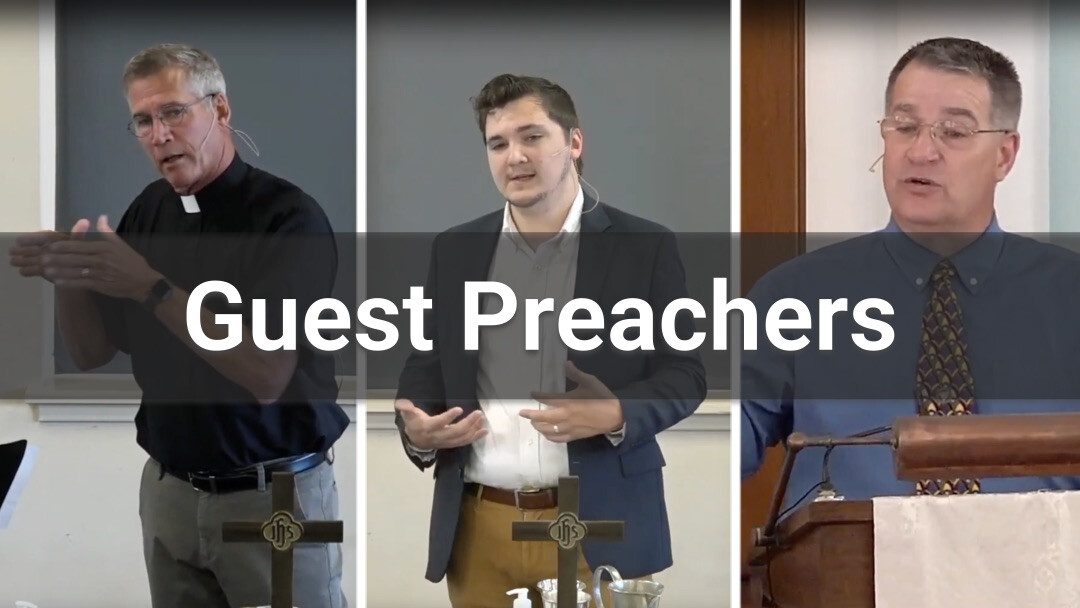
When Pastor Peter is away Second City Church is blessed to hear other men God has gifted to preach.

